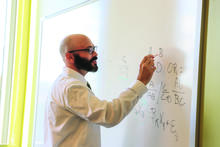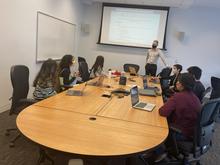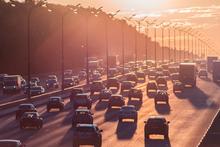- February 4, 2025
Funding will advance research on children’s health using data from the Environmental influences on Child Health Outcomes (ECHO) program
- November 27, 2023
Emissions from coal-fired power plants, though steeply on the decline, are more than twice as likely to lead to mortality as other air pollutants.
- October 25, 2022
Associate Professor of Global and Community Health Michael Bloom’s work with international scholars is a testament to Mason’s position as global research university
- April 5, 2022
Jenna Krall, a biostatistician in the Department of Global and Community Health, seeks to close the gap between novel air pollution prediction models and health studies
- October 15, 2021
Mason's DEVA project helps folks in Virginia breathe easier as research findings target air pollution sources and can shape clean air policies in the state.
- July 7, 2021
New research examines commuter characteristics to better understand how factors such as departure time, frequency, and commute length are associated with exposure to air pollution. Using personal air pollution monitors, the research clustered commuters to determine whether these clusters were associated with traffic pollution exposures. The study reveals that commuters that travel during rush hour have higher overall exposure to traffic-related air pollution compared to sporadic commuters, though the difference was not statistically significant.
Environmental researcher Lucas Henneman is investigating air pollution’s impact on health. He uses large datasets and computer models to track pollution after it’s emitted from sources such as automobiles, coal power plants, and natural gas plants. The models help identify which people in nearby communities breathe in pollution.
Studies have shown associations between exposure to traffic-related air pollution and adverse health outcomes, including preterm birth and low birthweight. However, few studies have estimated real-world exposures during personal vehicle trips for women commuters.







